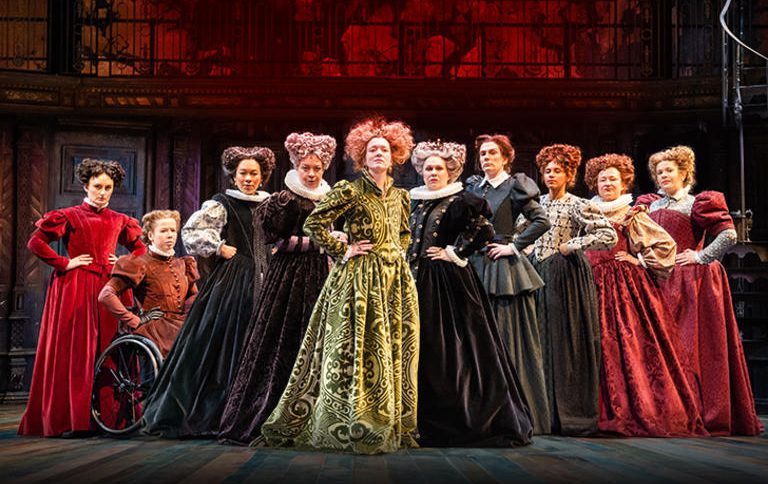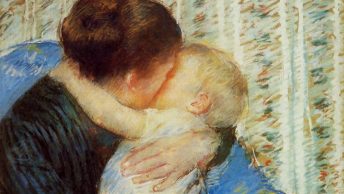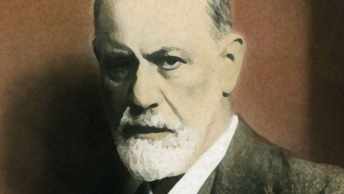On June 13th 2020 I saw a documentary on the Film & Arts channel about contemporary performing arts trends in London’s West End. The documentary focused on an updated version of “The Taming of the Shrew,” directed by Justin Audibert, with Claire Price as Petruchia and Joseph Arckley as Katherine. The production debuted at the Royal Shakespeare Theatre, Stratford-Upon-Avon, in March 2019. It is a very original staging, with all the roles reversed, men portraying women and vice versa. The situation is even more provocative due to the fact that men and women are represented in character, with period clothes.
New perspectives of hierarchy and power are approached in a matriarchal society, therefore dominated by women, but who act and are guided by deeply rooted patriarchal patterns. Thus, it is not a matriarchy conceived and conducted by women, but women treating men the way they usually are treated by them in a patriarchal society. With the roles reversed, the world we live in is at the same time totally different and unchanged, since social rules and relationships of domination and subjection remain. Actors and audience find themselves in an unusual, disconcerting, uncomfortable, unknown and challenging position. The actors commented that there were those in the audience who applauded, but also those who booed this new approach.
However, this new conception of a 1590 play illustrates that very current and highly questioned issues such as gender, violence and domination. Above all – what I find very exciting – this production allows actors and audiences to put themselves in different bodies and to feel what it is to live in them, with their specific characteristics, be it strength or fragility, freedom or restrictions. Joseph Arckley tells us that he acted in many plays, a large part of them as a villain. He talked about the challenge it was for him to embody the character as a woman with Katherine’s characteristics, who lives under the pressure from her environment, fights with her suitor as an intrusive, opponent invader, and ends up falling in love with him! On the other hand, Claire Price points out that Petruchio is a fearless, strong, free man trained for the fight and without constraints. She comments that he would probably feel totally free to go out at night anytime he wanted, without fear of an attack because he was fully capable of defending himself and dominating any malicious man, even killing him – she certainly wouldn’t! She would restrict herself, but not Petruchio.
Director and actors discussed gender issues, the difficulties and impasses to occupy the role of the other sex in these practically inherited social expectations through the ages, in which there is a crystallized conception of the place of man and woman and how they shall behave. They criticized that there is nothing funny about the domination-subjugation relationship present in the play because that means a kind of naturalized violence against each other, man and woman. They commented on the depth and timeliness of the text when addressing the question of the request for peace, when war is actually offered. They also commented on the audience’s reactions in some moments of the text and the silence in the face of that last issue, due to its very current nature of peace vs. war. I have found it extremely interesting!
Those interested can try to see more about it on You Tube, where excerpts from the staging and rehearsal are presented. It is worth looking for it and I would love to see this play on stage! My personal Late Autumn Night’s Dream, especially in times of coronavirus and, as if that were not enough, all theatres in the world are closed, as well as all the borders of all countries for Brazilians right now!
There is a committee related to the International Psychoanalytical Association (IPA) named Committee of Women and Psychoanalysis (COWAP) dedicated to the study of women, men and gender. I participate by discussing articles on these themes. This production proves to be a very thought-provoking opportunity to discuss these issues and the documentary addresses difficulties experienced by the actors to build their characters from such a different perspective, until then unthinkable. They declared that they had felt a vision of the other gender that was hitherto quite unknown for them and that they had a lot of fun at rehearsals. I’ve found it amazing and I highly recommend this play for the lucky ones who have the opportunity to see it on stage. For the less fortunate, like me, to watch the documentary.
Once again we can think about the power of art: a play that premiered in 1590, was reassembled in 2019, leads us to so many current questions, and gives us a great desire to be able to see it staged in a theatre. Having no idea at the time of writing this play, Shakespeare gives us today hope of living better days, with many provocative and beautiful things ahead.






